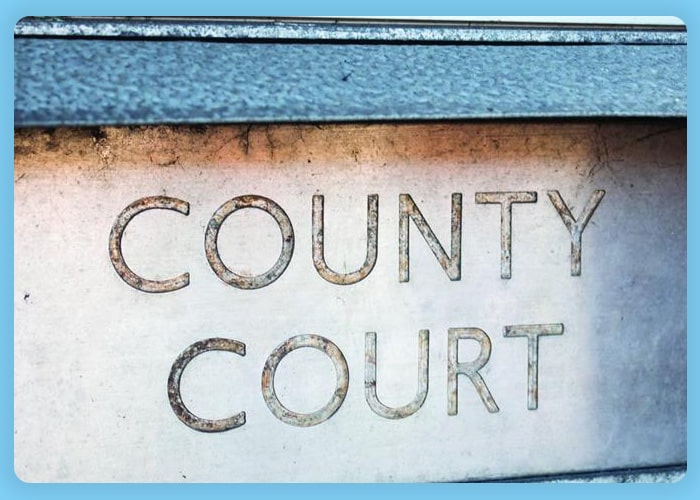Should I use the courts to recover outstanding business debt?
Taking a person or organisation to court is a serious step, and one that you should only use when you genuinely feel that you have no other choice. You therefore have to think carefully about whether you want to go through the process or whether it might be more prudent to simply write the debt off and never deal with the customer again. There are probably other paths you can still take, such as attempting to reach out via a mediator to resolve the situation without the courts having to get involved, or employing a debt collector to secure the money on your behalf. These techniques have strong track records, and the earlier you try them, the greater chance they have of success.
If you have exhausted your resources in terms of sending reminders and late payment requests with no result and you feel strongly that you wish to pursue a customer who hasn’t paid all the way to court, you can do so, but there is no guarantee that you will win your case or receive the money you are owed. Taking into account the fact that you will have to pay court fees, too, there is a chance that you might end up spending more than you receive, so you have to be sure that you will win.
Recovering unpaid debts through the county court
If you do decide to take the dispute to court, there are various paths that the process can take, depending on the size and complexity of your claim.
If the claim is not officially disputed (as tends to be the case with business disputes), then you can obtain judgement and enforcement action, which should result in you being paid relatively quickly.
If the claim is officially disputed, however, the case will be subject to a hearing in one of three courts.
Small claims
Debts up to £10,000 are assigned to the small claims track, which is a simple and relatively informal and inexpensive way of resolving financial issues in the county court. Small claims hearings tend to be dealt with using written evidence, so it is important for you to keep all relevant paperwork in order for it to be deployed here. In certain cases, a hearing may be required, in which you can represent yourself, hire a solicitor or have someone else speak on your behalf with the court’s permission.
Large claims
Claims that exceed £10,000 but are less than £25,000 will result in a more formal hearing in the fast track court and require you to obtain legal advice, though you will be advised what you need to do in preparation for the hearing.
Claims over £25,000 will be referred to the multi-track court (housed within the High Court, rather than the county court).
Additionally, if a business owes over £750, it can be issued a statutory demand for payment to be completed within 21 days; otherwise the court can be petitioned to wind the company up. This is a significant step that should be carefully considered before it is made.
For your consideration:
– A judge may not award you anything if he or she concludes that you have not made a concerted effort to resolve the situation before bringing it to court, hence the need for you to explore all possible paths for resolution before involving the legal system.
– You can also charge interest on the debt up to the date of the court order if you wish. This is usually 8.5%.
– The customer may not have the means to make the payment, so you may want to begin winding-up proceedings.
After the court hearing
– You can either accept or appeal the decision if it goes against you.
– If you do not need to appeal, you may have to apply for enforcement measures if you decide they are necessary.

